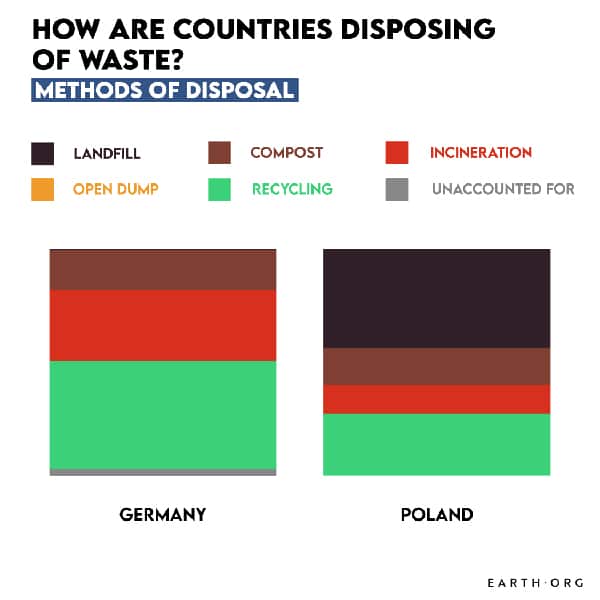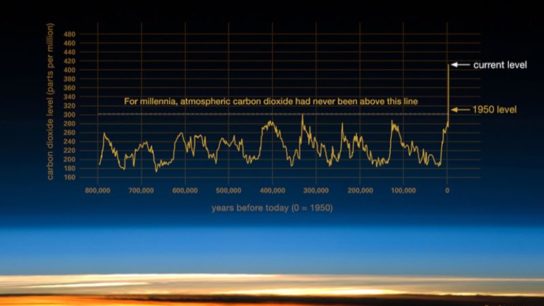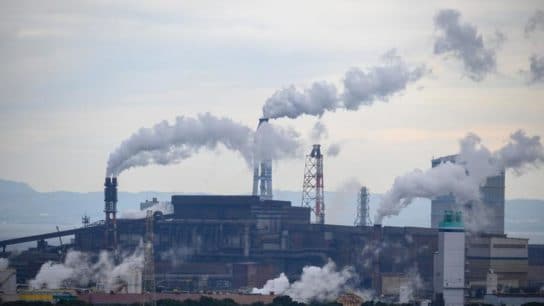Tons upon tons of waste are imported in Poland each year from within the EU, much of it from Germany. Beyond the illegal types of waste making it through, Poland has enough difficulty dealing with its own garbage.
Earth.Org takes a closer look
—
China, which used to receive the bulk of the world’s solid waste, introduced an import ban on 24 types of waste in January 2018. Since then, countries have been in disarray, burdened with more trash than they could process. The new major destinations became Malaysia, Vietnam, Thailand, Indonesia, Taiwan, South Korea, Turkey, India and Poland.
After China’s ban Poland has become a dumping ground for Europe, mainly for the UK, Italy, Austria, but especially Germany, which accounts for 70% of Polish waste imports. They remain the second largest EU waste importers after the Netherlands, but their lax regulations make them a target for illegal exports. Recyclable materials can be traded freely within the EU with the right permits, but it is quite easy to bypass the system, falsely declare waste types and burden poorer countries with dangerous, long-lasting compounds (Romania and Bulgaria are also big targets).

Source: World Bank.
The problem is that German companies can avoid the stricter, more costly national waste management systems, and split their disposal costs in half by exporting to Poland. As you can see, the latter falls short of the EU minimal recycling requirement of 50%, standing at 33.8% versus the bloc’s average 46.4%.
On the receiving end, companies are happy to get paid to take care of the trash, and even say they will recycle it when all they have is a plot of land and an excavator. Too often are there cases where a recycling permit is issued without verification of the necessary facilities, leaving the waste to either stack up or be illegally burned. As you can immagine, incineration without the most modern technology is dangerous, as toxic chemicals are released and can harm both locals and the environment.
Since Poland lacks the infrastructure to keep up with its own waste generation, let alone that of other countries. Many are calling for stricter regulations, but until these materialize, private German entities will continue choosing the economically advantageous, yet environmentally most damaging option.
This article was written by Owen Mulhern.
You might also like: The Ocean Absorbed 20 Sextillion Joules of Heat in 2020










![The Statistics of Biodiversity Loss [2020 WWF Report]](https://u4d2z7k9.rocketcdn.me/wp-content/uploads/2020/12/lprwinkyTHB-544x306.jpg)





